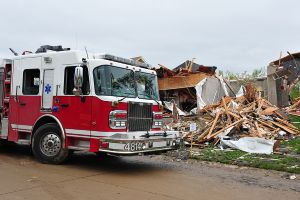 Virtual Reality (VR) has strong roots in the military. Long used for training and simulations, the military has helped develop VR technology and continues to innovate in how it can be used. VR continues to be invaluable to tactical, mission training but is also being used in other training areas. For example, the Virtual Welder Trainer program simulates multiple welding processes, blending real world and computer-generated images into a VR environment to allow welders to train without having to use real world resources. Just as flight simulators save money in terms of aircraft use, other virtual reality in military training applications provide similar cost savings in terms of equipment and travel.
Virtual Reality (VR) has strong roots in the military. Long used for training and simulations, the military has helped develop VR technology and continues to innovate in how it can be used. VR continues to be invaluable to tactical, mission training but is also being used in other training areas. For example, the Virtual Welder Trainer program simulates multiple welding processes, blending real world and computer-generated images into a VR environment to allow welders to train without having to use real world resources. Just as flight simulators save money in terms of aircraft use, other virtual reality in military training applications provide similar cost savings in terms of equipment and travel.
Designing and Maintaining Military Equipment
VR is being utilized in all aspects of equipment management. In the design phase, VR can help engineers test designs in combat environments. It can also help determine if a piece of equipment designed for one scenario might work in another and what changes would have to be made to ensure products can operate in a desert environment as well as in cold and rainy climates. Continue reading

 Equity is highlighted in
Equity is highlighted in  As with other networking and professional development events, job fairs are also transitioning back to their in-person form, but not without changes. The beauty of a job fair is the
As with other networking and professional development events, job fairs are also transitioning back to their in-person form, but not without changes. The beauty of a job fair is the 
